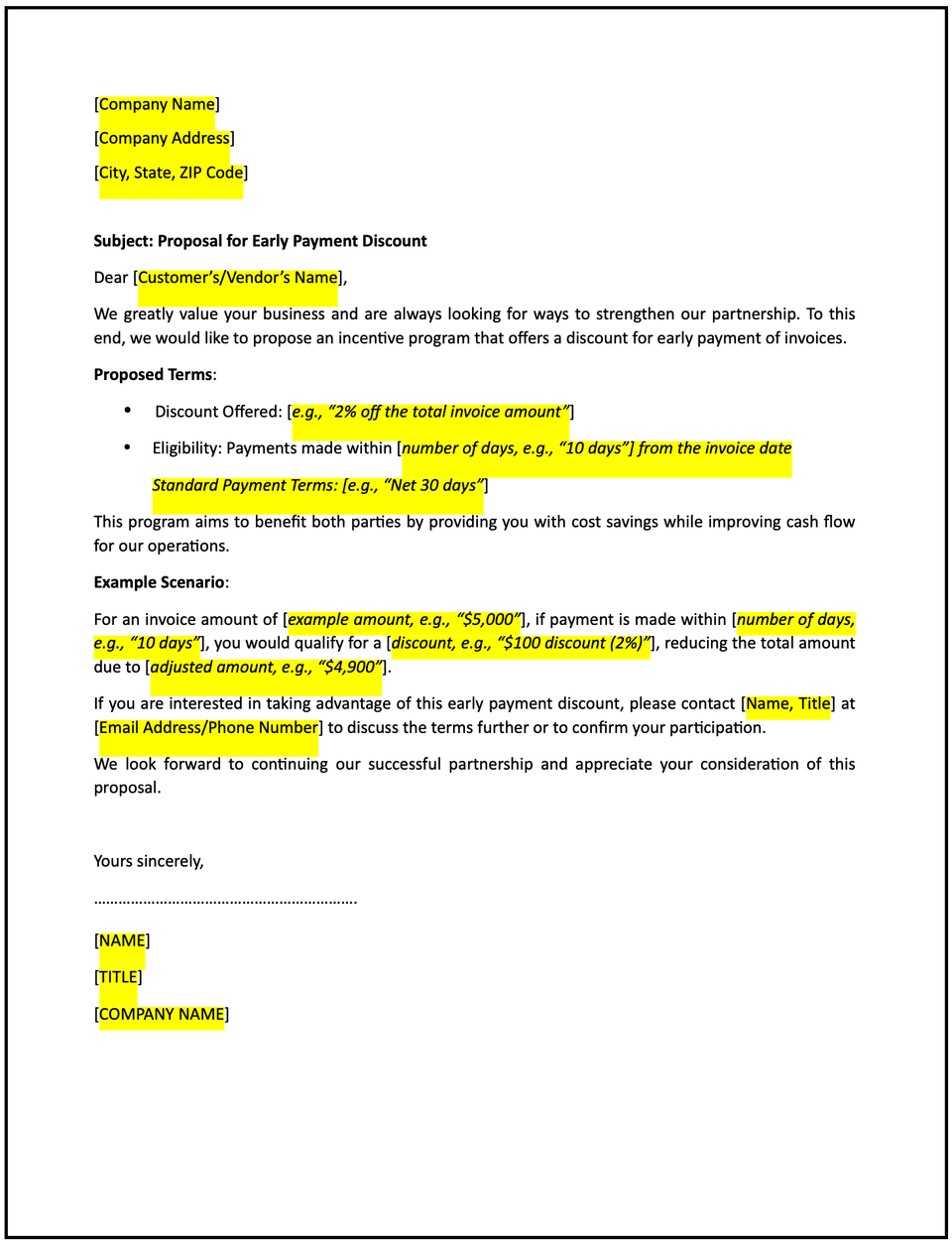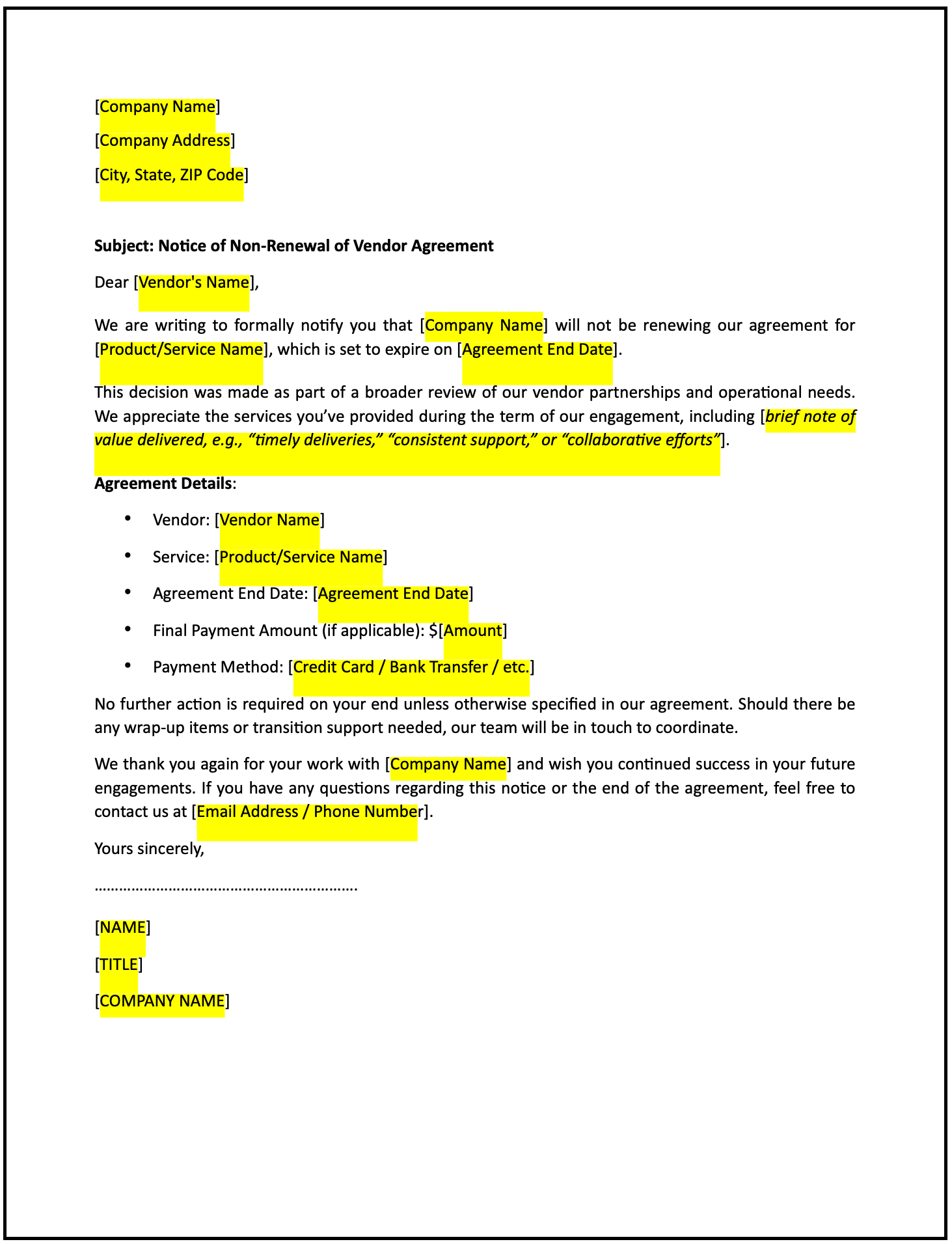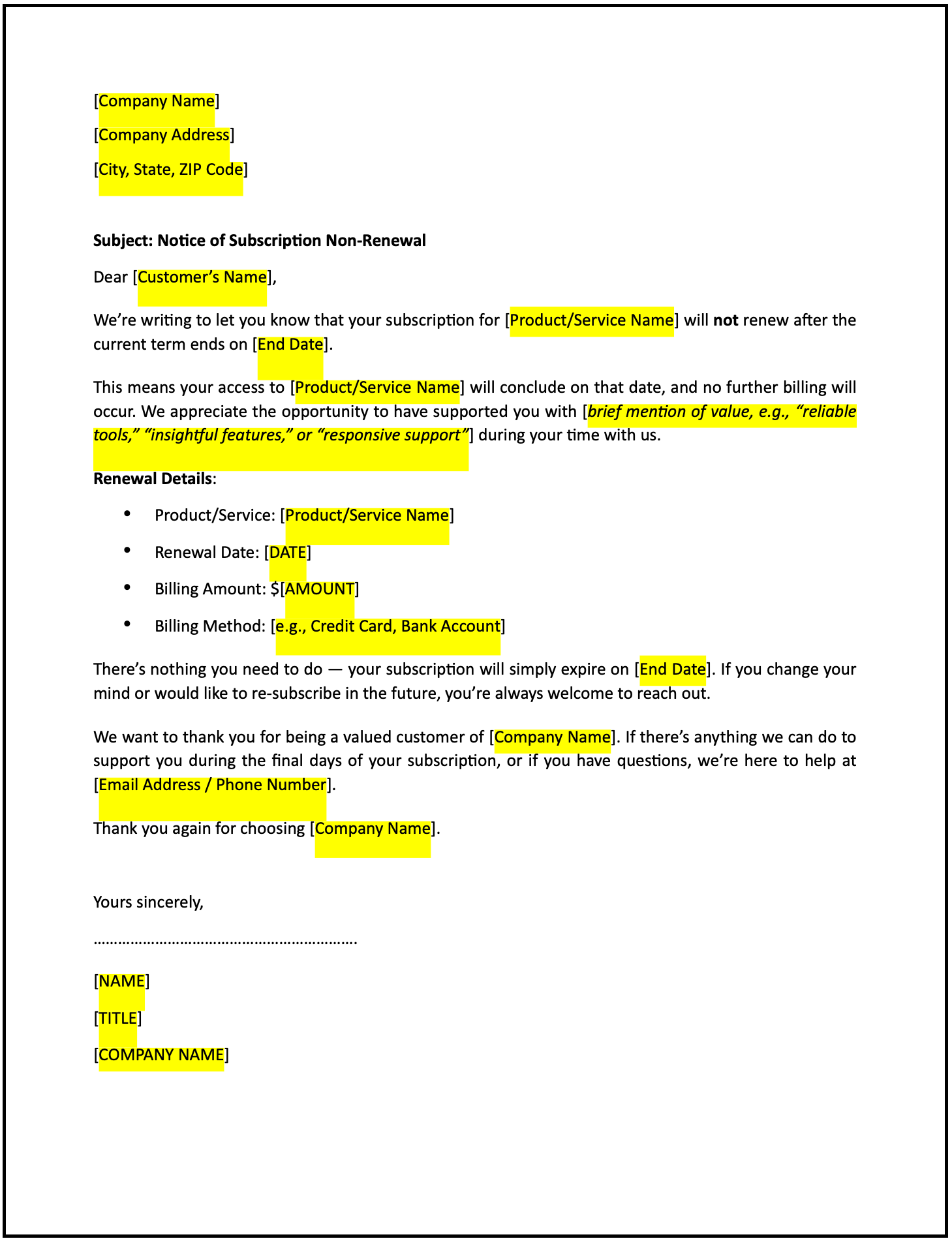Letter proposing discounts for early payment: Free template

Letter proposing discounts for early payment
A letter proposing discounts for early payment is a formal communication used to offer customers or clients an incentive to settle invoices ahead of the due date. This letter outlines the terms of the discount, its benefits for both parties, and how the proposal aligns with financial goals.
How to use this letter proposing discounts for early payment
- Open with an introduction: Address the recipient respectfully and acknowledge your existing business relationship.
- State the purpose: Clearly communicate your intent to propose an early payment discount.
- Outline the discount terms: Specify the discount rate, the eligible payment period, and any conditions attached.
- Emphasize mutual benefits: Explain how the arrangement benefits both parties, such as improved cash flow for your business and cost savings for the customer.
- Include payment details: Highlight the payment methods and timelines that ensure eligibility for the discount.
- Encourage collaboration: Invite the recipient to discuss the proposal or ask questions about the terms.
- Maintain a professional tone: Ensure the letter is clear, respectful, and focused on fostering a positive partnership.
- Provide contact information: Include details for the recipient to reach out with questions or to confirm acceptance of the offer.
Benefits of using a letter proposing discounts for early payment
This letter ensures a structured and professional way to incentivize early payments while fostering stronger customer relationships. Here’s how it helps:
- Improves cash flow: Early payments help businesses manage finances more effectively.
- Strengthens relationships: Offering a discount shows appreciation for the customer’s promptness and loyalty.
- Encourages timely payments: Discounts incentivize customers to settle invoices before the due date.
- Reflects professionalism: A well-crafted letter demonstrates respect and a commitment to mutually beneficial arrangements.
- Supports financial planning: Predictable early payments enable better financial forecasting.
Tips for writing an effective letter proposing discounts for early payment
- Be specific: Clearly outline the discount terms, including the rate, timeframe, and any conditions.
- Use professional language: Maintain a respectful and constructive tone to foster collaboration.
- Provide context: Briefly explain how the discount supports both parties’ financial goals.
- Highlight mutual benefits: Emphasize the cost savings for the customer and improved cash flow for your business.
- Include actionable steps: Share instructions for accepting the proposal and ensuring eligibility for the discount.
- Keep it concise: Focus on the essential points while ensuring the tone is professional and engaging.
Frequently asked questions (FAQs)
Q: What details should I include in this letter?
A: Include the discount rate, eligible payment period, conditions, and payment methods.
Q: Should I personalize the letter?
A: Yes, addressing the recipient by name and referencing their account or invoices demonstrates attentiveness and professionalism.
Q: Who typically sends this letter?
A: Finance teams, sales departments, or business owners typically send this letter.
Q: How formal should this letter be?
A: The tone should be professional, respectful, and focused on fostering collaboration.
Q: When should this letter be sent?
A: Send the letter when proposing new payment terms or encouraging timely payments.
Q: Can this letter include examples of savings?
A: Yes, providing a simple example can help illustrate the value of the discount for the customer.
Q: Is acknowledgment from the recipient required?
A: While not mandatory, requesting acknowledgment ensures the recipient understands and accepts the proposal.
This article contains general legal information and does not contain legal advice. Cobrief is not a law firm or a substitute for an attorney or law firm. The law is complex and changes often. For legal advice, please ask a lawyer.


